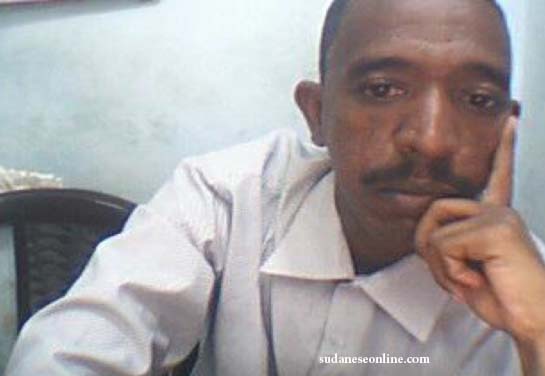| 10-05-2014, 04:14 PM |
Abdul-Aziz Ali Omer
 Abdul-Aziz Ali Omer Abdul-Aziz Ali Omer
Registered: 01-13-2014
Total Posts: 85
|
|
 In a meeting on the Nile In a meeting on the Nile
|
In a meeting on the Nile
Jamal Aldeen Al agarabi is an active reporter for Sudanese federation of rowing and canoe. We have pulled him out from his every day concerns and he answered some of questions that reveal his personality social and political philosophy in brief.
Gedaref? It is a city I love and close to me.
Smile ? The beginning of friendship.
Your message to the world powers? Please put the climate change in your election agenda.
The recent tragic events in South Sudan? I, my self wonder, what has happened to the world newest nation, is it political shortsightedness? Who is responsible for the ethnic tension, tribal division , chaos and civil war.
What do you think of sport? It is an integral part of human life. It is a way for achieving a healthy body.
Kassala? It is the most wonderful city in the Eastern part of Sudan.
Morning in Khartoum? It is a slow journey of sun across the sky . It is the beginning of hope and creativity. There is tranquility and beautiful waterfalls.
Fasting Ramadan? It teaches a man love and to be honest and to be close to Allah.
What is your favorite saying ? Don't judge a book by its cover.
Poverty ?.
Poverty is a complex multidimensional problem, Sudan, suffered from political and economic instability as well as ecological problems, which aggravate the situation by having high poverty rate in comparison to the neighboring countries Poverty in the Sudan is deeply ingrained and is largely rural. Excessive and continued rural migration pressure to Khartoum State had exceeded social services capacity with concomitant increasing poverty in the urban centers of the state. Low-income employment relationship and low level of education of household ######### had bad effects on their economic and social situation. Large numbers of population in the state, high spending on food items in the rural and urban areas in Khartoum state with under nutrition. People with low income included government employees. Low-income people who fell below poverty line were in rural Khartoum areas. Inequity in income distribution concentrated in the state, especially in Khartoum north areas. Shortage in access to basic needs service, particularly drinking water, free education and insurance medical services
.
|
|
   
|

|

|

|
|
|